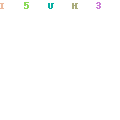KOLKATA: Two monochrome films – both directed by Bengali film-makers – were adjudged the top movies in the best film in Asian Select Section and the best film in the competition on Indian Languages Films at the 27th Kolkata International Film Festival (KIFF) that concluded on Sunday. The icing on the cake was the best film award at the International Competition: Innovation in Moving Images being given to another Bengali film-maker for his film ‘Jhilli’, which is set in the Dhapa dumping ground. Its prize money of Rs 51 lakh is the highest in any international film festival.
Just before the award ceremony, the entire Nandan-Rabindra Sadan premise was chock-a-block, with many pleasantly surprised by the serpentine queue for Aparna Sen’s ‘The Rapist’. People sat on the aisle, stood in front of the gates to watch the movie on the concluding day. The talking point for many was the efficiency of team KIFF that has ensured that all the 128 films of the 26th edition of KIFF and the 163 films of its 27th edition were screened without any cancellation. KIFF chairperson Raj Chakraborty said, “Since we hosted 27th KIFF in April, we will have some months to coordinate and get good cinema for the next edition. The committee will take a final call.”
Meanwhile, the prize money will be a huge boost not just for ‘Jhilli’ director Ishaan Ghose, who happens to be the son of director Goutam Ghose, but contemporary Bengali cinema at large. “To have films like the Cannes-winner ‘Compartment No 6’ in contention is a huge thing. It feels surreal to have won the best film award. KIFF jury president Lav Diaz, who is a pioneer in independent cinema, probably connected with the process of my film-making and its limitations,” the 34-year-old director said. The prize money will help him start his next, which will be a Bengali film set outside Bengal. “I would love it if my film inspires film-makers in Kolkata to think in their own way and not get stuck with any blockades related to funds. There is no point waiting for that perfect day to arrive. I feel it’s important to go out and just shoot with the resources one has,” he added. A cash prize of Rs 21 lakh was given to Polish director Ola Jankowsa for the best director award in the same category for her film ‘Anatomia’ (Anatomy). Tunisian film ‘Streams’, directed by Mehdi Hmli, received the Special Jury Award in this section.
A cash prize of Rs 7 lakh for the Hiralal Sen Memorial Award for best film in Indian Languages’ Films category went to Amartya Bhattacharya’s Odia film ‘Adieu Godard’. It was shot in monochrome across Odisha’s countryside. It has music by Kisaloy Roy and playback by Rupam Islam. Choudhury Bikash Das, who plays the elderly protagonist smitten by his love for legendary French filmmaker Jean-Luc Godard which he curiously developed during a detour while watching porn, couldn’t attend the award ceremony since he was busy shooting Odia serials. “The desaturated tone of the rural part of the narrative helped me create the contrast between rural and the urban space and urban mood. This contrast was needed as I was jumping between the two narratives and hence an essential element,” Bhattacharya added. The prize money, he said, will “encourage” him to make “more risky and alternative films which otherwise will fade out from the contemporary cinema space because industry producers prefer to play safe and are not too welcoming to new ideas and forms”.
The NETPAC award-winning Abhinandan Banerjee’s Bengali film ‘Manikbabur Megh’ (The Cloud and the Man), which poetically traces a relationship between a man (Manikbabu) and a cloud, was also shot in monochrome. “I needed to create a parallel realm of Manikbabu’s own reality amidst the reality of regular mortals. The monochromatic universe of Manikbabu grew very organically for me within the parenthesis of colourful imageries in the beginning and the end of the film. While creating this allegorical space, I myself started finding many paths of interpretations of parallel symbolism of his existence in the black and white world of the character.” He added that cinema is a medium that needs to be felt and absorbed within. “People have experienced the world of monochrome in their own ways. That’s where the beauty of cinema lies. It has no certainty but only possibilities,” he said.
A Special Jury Award in Indian Languages’ Film Category was given to Anuraag Pati’s ‘Prapti’. The Golden Royal Bengal Tiger Award for Best Indian Documentary Film was given to Shuchi Prasad’s ‘The Little Book of the Little Man’. The award carried a cash prize of Rs 3 lakh. The Golden Royal Bengal Tiger Award for Best Indian Short Film went to Shristipal Singh’s ‘Geru Patra’. This award carried a cash prize of Rs 5 lakh.
Source: https://timesofindia.indiatimes.com/city/kolkata/bengal-directors-bag-top-kolkata-international-film-festival-awards/articleshow/91274688.cms

